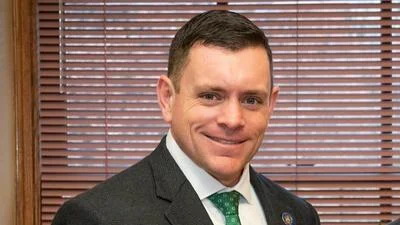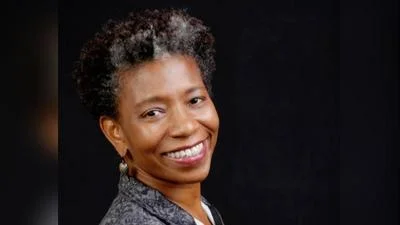Christopher J. Larson, Wisconsin State Senator for 7th District | Facebook
Christopher J. Larson, Wisconsin State Senator for 7th District | Facebook
According to the Wisconsin State Legislature's official website, the bill was described as follows: "waiting period for purchase of handguns".
The following is our breakdown, based on the actual bill text, and may include interpretation to clarify its provisions.
In essence, this bill amends existing statutes to establish a mandatory 48-hour waiting period for the purchase of handguns in Wisconsin, starting from the time a federally licensed firearms dealer requests a background check on a prospective purchaser from the Department of Justice. During this period, the dealer cannot transfer the handgun to the purchaser. The purpose of the background check is to determine if the purchaser is prohibited from possessing a firearm under state or federal law. Should the initial background check indicate uncertainty about the purchaser's eligibility, the Department of Justice is required to make every effort to clarify the individual's legal status within five working days of the request. This act will apply to sales occurring on or after its effective date.
The bill was co-authored by Representative Shelia Stubbs (Democrat-78th District), Senator Tim Carpenter (Democrat-3rd District), Senator Kristin Dassler-Alfheim (Democrat-18th District), Senator Dora E. Drake (Democrat-4th District), Senator Jodi Habush Sinykin (Democrat-8th District). It was co-sponsored by Representative Clinton M. Anderson (Democrat-45th District), Representative Deb Andraca (Democrat-23rd District), and Representative Margaret Arney (Democrat-18th District), along 45 other co-sponsors.
Chris Larson has authored or co-authored another 54 bills since the beginning of the 2025 session, with all of them being adopted.
Larson graduated from the University of Wisconsin, Milwaukee in 2007 with a BA.
Larson, a Democrat, was elected to the Wisconsin State Senate in 2011 to represent the state's 7th Senate district, replacing previous state senator Jeffrey Plale.
In Wisconsin, the legislative process starts when a senator, constituent, group, or agency proposes an idea for a bill. After drafting, the bill is introduced, numbered, and referred to a committee for review and public input. If approved, it moves through three readings and votes in both the Senate and Assembly. Once both chambers pass the same version, the bill goes to the governor, who can sign it, veto it, or let it become law without a signature. Only a small share of bills introduced each session ultimately become law. You can learn more about the Wisconsin legislative process here.
| Bill Number | Date Introduced | Short Description |
|---|---|---|
| SB330 | 06/19/2025 | Waiting period for purchase of handguns |
| SB329 | 06/19/2025 | Extreme risk protection temporary restraining orders and injunctions, making an appropriation, and providing a penalty. (FE) |
| SB319 | 06/12/2025 | Designating the rusty patched bumble bee as the state native insect |
| SB314 | 06/04/2025 | The pupil participation limit in the state parental choice program |
| SB233 | 04/29/2025 | Inducements to sign or refrain from signing nomination papers, recall petitions, and certain other petitions |
| SB165 | 03/27/2025 | Eliminating daylight saving time in Wisconsin |
| SB150 | 03/21/2025 | Passing legislation to reduce carbon emissions |
| SB149 | 03/21/2025 | Requiring the legislature to convene an extraordinary session if an executive order of the president of the United States freezes federal aid to the state |






 Alerts Sign-up
Alerts Sign-up